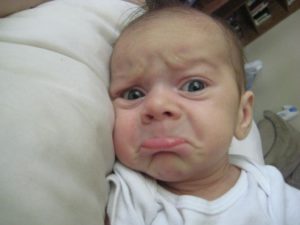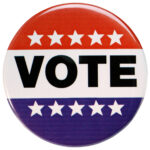 Bisphenol-A is an industrial chemical used to make polycarbonate plastic, the key ingredient in clear, shiny plastic baby bottles and many other plastic products. When exposed to heat or stress, Bisphenol-A (BPA) can leach out of the plastic baby bottle and into the formula it contains. Research indicates that at very low levels, BPA has the potential to disrupt the normal functioning of hormones, cause hyperactivity, impair learning, affect the onset of puberty, and lead to other health problems. BPA-free baby bottles are the safest, healthiest bottles to use.WebMD reviews some of the key research, conducted by Case Western Reserve University School of Medicine, here. This study shows that very low doses of BPA can have serious health effects and that dangerous amounts of BPA can seep out of used plastic bottles.
Bisphenol-A is an industrial chemical used to make polycarbonate plastic, the key ingredient in clear, shiny plastic baby bottles and many other plastic products. When exposed to heat or stress, Bisphenol-A (BPA) can leach out of the plastic baby bottle and into the formula it contains. Research indicates that at very low levels, BPA has the potential to disrupt the normal functioning of hormones, cause hyperactivity, impair learning, affect the onset of puberty, and lead to other health problems. BPA-free baby bottles are the safest, healthiest bottles to use.WebMD reviews some of the key research, conducted by Case Western Reserve University School of Medicine, here. This study shows that very low doses of BPA can have serious health effects and that dangerous amounts of BPA can seep out of used plastic bottles.Consumer Reports conducted its own study on BPA:

Based on testing with an intact bottle, we calculate that a typical baby who drank formula sterilized by heating in the bottle would be exposed to a bisphenol-A dose of about 4 percent of an amount that has adversely affected test animals in studies by Frederick vom Saal, professor of biological science at the University of Missouri, Columbia.
Such exposure may sound very low. However, safety limits for infant exposure can be set as low as 0.1 percent of the level that has adversely affected animals. Babies who used the bottles we tested could be exposed to a bisphenol-A dose 40 times higher than that conservative definition of safety.
George Pauli, the director of the division of product policy at the Food and Drug Administration, said the agency has looked into bisphenol-A leaching, and it stands by its decades-old approval of polycarbonate baby bottles as safe. We think the FDA needs to re-examine the issue in light of our data and recent concerns about the sensitivity of babies to the estrogenlike effects of chemicals such as bisphenol-A.”
Recommendations:
- Learn to identify polycarbonate plastic containers so you can avoid them. They are generally clear and rigid, and may have the recycling symbol 7 marked on the bottom.
- Select BPA-free baby bottles made of tempered glass or polyethylene or polypropylene (recycling symbols 1, 2 or 5), which do not leach chemicals into formula or breast milk. Born Free offers baby bottles, trainer cups, nipples and bottle sterilizers that are BPA-free
- Avoid heating breast milk and infant formula over the stove or in the microwave in plastic; dangerous chemicals are more likely to leach when you heat in plastic.
- To avoid bacteria, look for scratches in plastic bottles.
- Avoid plastic bottles that have decorations printed on the inside. These can come off into formula when it’s been heated.
- To avoid shards of glass ending up inside the bottle, glass bottles with cracks and chips should be discarded immediately.
- Avoid disposable nursers if possible, as the plastic bags may leak or burst. There have also been incidents of babies choking on the plastic tab inside.









